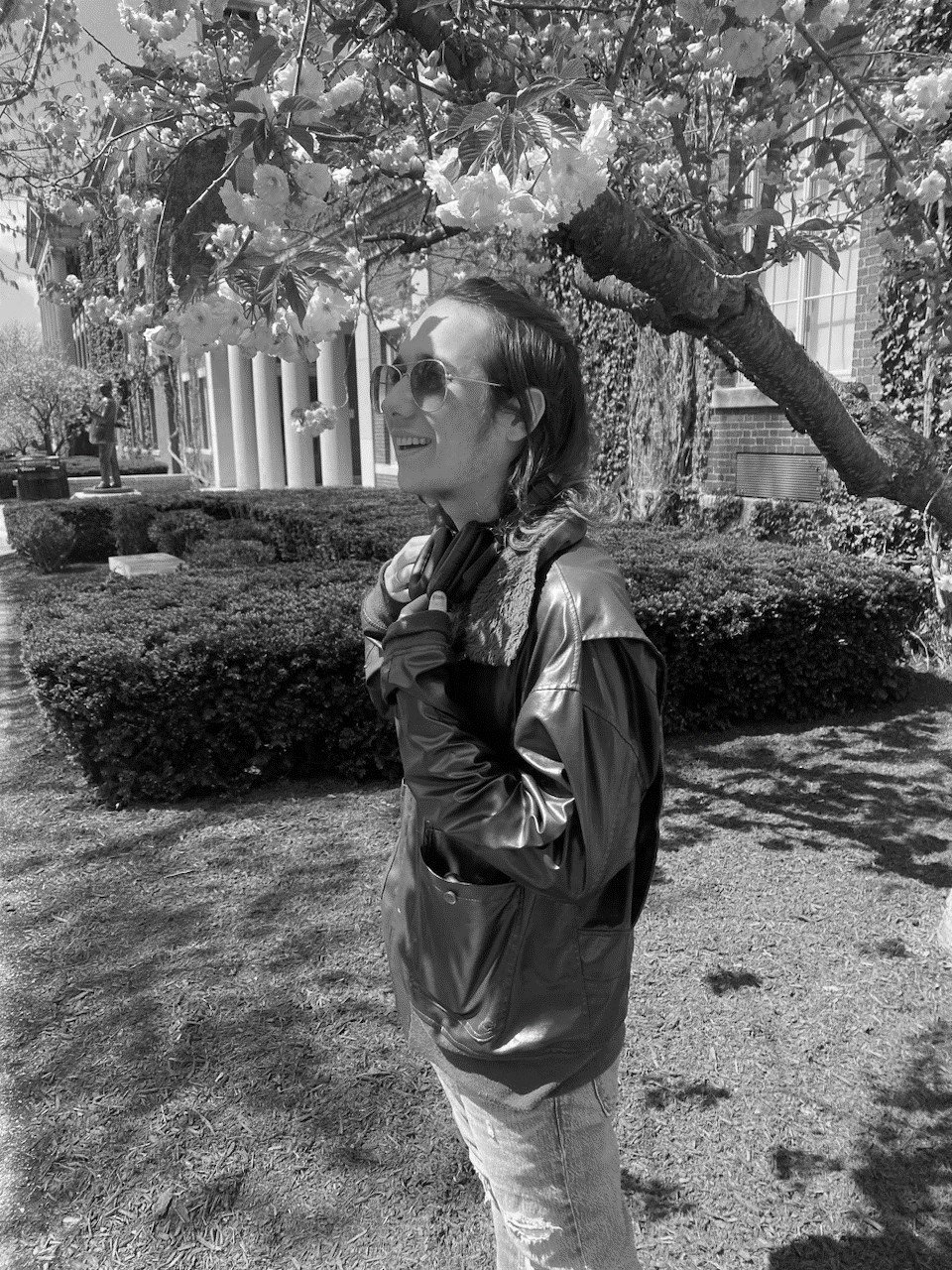Marriage of Equals
i.
Let the whole town suffer quietly
in their marriages and motels. Buses
crawl the highways
like fat cockroaches
skitter across the wall. Leave
one town and it’ll catch you again farther
down the interstate, only the hotel
names have changed. Road’s broken.
ii.
When roaches hissed their legs
across my bedspread as a kid, I cringed.
Thick insect bodies glinting, bronze before
the greening, like Greek heroes laid prone
in sculpture: that brutal last twitch
caught in cast. A body splayed and hitched.
A cockroach is the hero knocked low
by memory, facing a death a day,
pierced through yet swaggering
along the smoke-stained wall of a Motel 6.
I hated the roaches. Only later I learned
their movement mirrors your heartbeat
when a man inches you closer to the faded
wall with every thrust, the trunks of his limbs
pinning you to the mattress.
They move like they know fear.
iii.
It’s the people who can survive
anything that are most afraid. You know better
the measure of your body, then,
the time you told your husband
you just wanted to sleep, and still your duty
is to gape like a toothing mouth, except your mouth’s
teeth are loaded in your gums like bullets, lips
rimming a slim dark space from which spit dribbles
when you reach for air where the air should be
and instead catch the thick fabric of a sinner’s body.
Surviving that, you know exactly when you break,
at which point you will not be able to abide,
you know you’ll be called upon to cross that threshold anyway.
If a wedding dress is 99 cents at the corner store,
no one asks why, or stops to notice it’s inset with slow-hatching gems:
bugs and eggs. We just buy it, incredulous
of beauty at such a low cost in a town where
you can’t hang the washing out on the clothesline:
by the time it’s dry it’s scourged by dirt and worse
darks kicked up by fleet wheels of the cars,
whose road plunges through our sore hearts
like a concrete javelin.
Eventually we all must become something else
in surviving what’s been given to us.
iv.
I married young and didn’t think much about it,
besides the beauty of the dress, absent any other way
of making a life in a town whose industry
shriveled behind it like a failed amputation.
I loved the dress, tolerated my fiancé, and hated the roaches
in the house I grew up in: watched by the silent eyes of bugs,
which dropped into the flat grey highways, the failing hotels,
the fields and mines resentful of the men who gouged them. After a wedding,
you never get to wear the dress again. Maybe
if I’d known that, I wouldn’t have married him;
the dress was off minutes after we walked in the door. No beauty
that night, no beauty the next. Sometimes, shifts he’s working, I still unfurl
the dress from behind his uniforms, let the fabric drop like my consonants
at the ends of words – when I speak at all, not much, these days.
There are roaches in this house, too,
I had noticed the third night he snored by my side, their wings crinoline.
I see them scuttling into the corners of the closet when I pull out the dress.
Their wings are miniature hemlines, sheer and fluttering like fabric
when the wind of a good dance is blown up into it. Our beauty is hoary,
the froth of my dress hem skims the stubbly ground like roachs’ wings
taste air hesitant before flight. They’ve gotten used to me,
lights off and twirling; they emerge from the holes in the wood
and take up the waltz, a diaphanous latticework of
stiches and veins. We dance in our twin dresses.
No matter where you go along the highway, our houses and hotels
host weddings for roaches. Their wings hatch rattling sweetheart
necklines, the beauty of every flight.
Amy Richards is a multi-faceted artist whose passion lies in experimenting and collaborating. Even though her current focus is on film, she strives to bring other artistic elements to the screen, satisfying her need for creative exploration. She is a strong supporter of interdisciplinary art, and her work significantly embodies this priority. As a recent graduate of San Francisco State University, she will continue her career in the film industry with a focus on music videos and experimental works.
Apollo Chastain (ze/hir) is a trans, cripple-punk 21-year-old who writes poetry for people who didn’t think they’d make it this far and for kids who don’t think they’re gonna make it at all. The recipient of the 2021 Academy of American Poets College Prize for hir university and three-time winner in the National YoungArts competition, Apollo’s work appears or is forthcoming in journals including Poets.org, a PEN America fellowship publication, Diode Poetry Journal, and The Arkansas International, and under a dead name in journals including The Rumpus. Ze published two chapbooks under a dead name. Pay hir a visit at apollopoet.wordpress.com, or on Instagram @apollo.chastain
Zoe Wynns is a composer and creator from Cary, North Carolina. She is interested in the ways that music can lift up and enhance other art forms. She has self-produced two albums and a soundtrack for a Carolina Film Association short film. She currently studies music and creative writing at the University of North Carolina at Chapel Hill.



